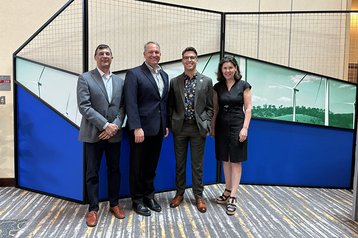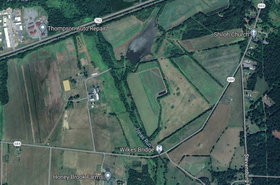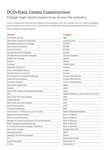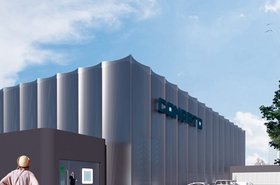Google is working with Purdue University, Indiana, on a project exploring the use of AI in designing low-carbon data centers and other industrial buildings.
The project will deploy AI to explore new materials, technologies, and design strategies that it is hoped can significantly reduce the carbon footprint of new builds.
“Google is committed to using AI to address some of the world’s most pressing challenges, including climate change,” said Ben Townsend, the search giant’s global head of infrastructure and sustainability. “We are excited to partner with Purdue University on this important research project, which has the potential to accelerate the adoption of low-carbon building practices in the industrial sector.”
One focus area for the project will be to prioritize the use of low-carbon building materials and finding potential new applications for these materials as part of the building process.
The research findings from this collaboration will be shared with the wider research community and industry stakeholders, aiming to boost the adoption of sustainable building practices.
“By combining Purdue’s expertise in engineering and building science with Google’s cutting-edge AI capabilities, we aim to develop innovative solutions that can significantly reduce the carbon footprint of industrial buildings,” said Travis Horton, a professor in Purdue’s Lyles School of Civil Engineering.“This collaboration is a testament to our commitment to sustainability and our belief in the transformative potential of AI.”
Many data center operators are looking at green construction methods, and last September Microsoft said it was experimenting with low-carbon concrete at a facility in Quincy, Washington.
Construction work on a 3D printed data center, made with 100 percent recyclable concrete, in Heidelberg, Germany, was completed earlier this year.
Google has been working to reduce the carbon footprint of its facilities, while at the same time expanding its data center estate to match high demand for AI and other resource-intensive workloads.
In January it revealed it was using a time-based energy-matching platform from Flexidao to help ensure energy it uses is backed by green energy it has paid to produce.
DCD reported in March that the company was hiring an 'AI/ML carbon reduction and net zero lead' to head a new data center climate strategy. The successful candidate would be tasked with developing “a new OpEx/CapEx budget and cost approach for Net Zero and 24/7 Carbon-Free Energy to scale with our AI/ML growth, and enable teams to operate and execute more efficiently,” a job listing said.







